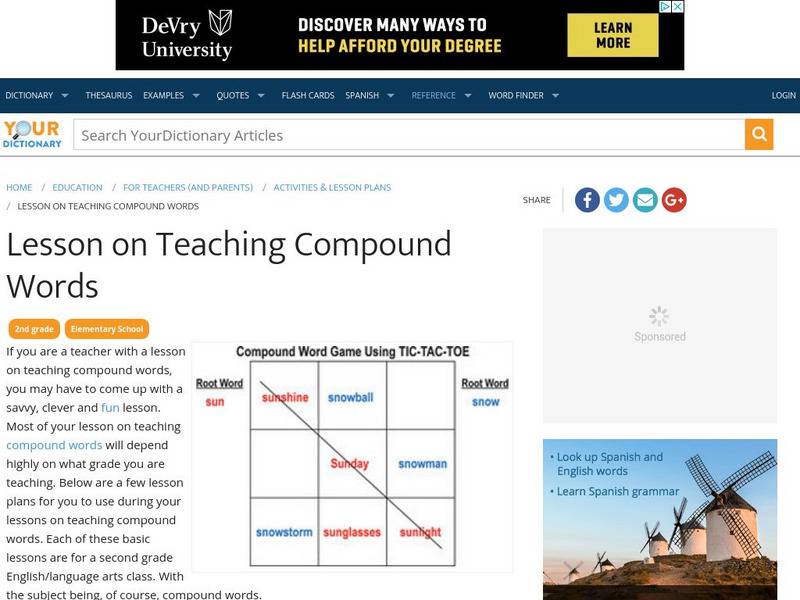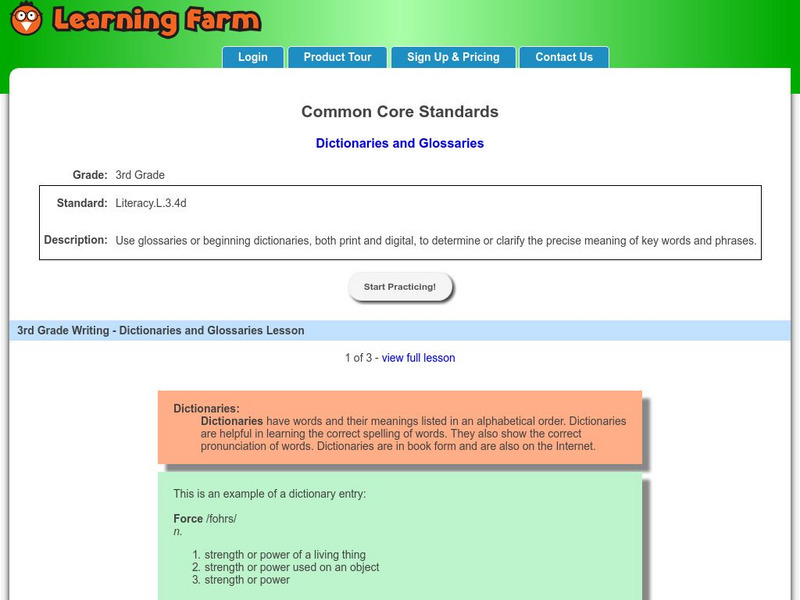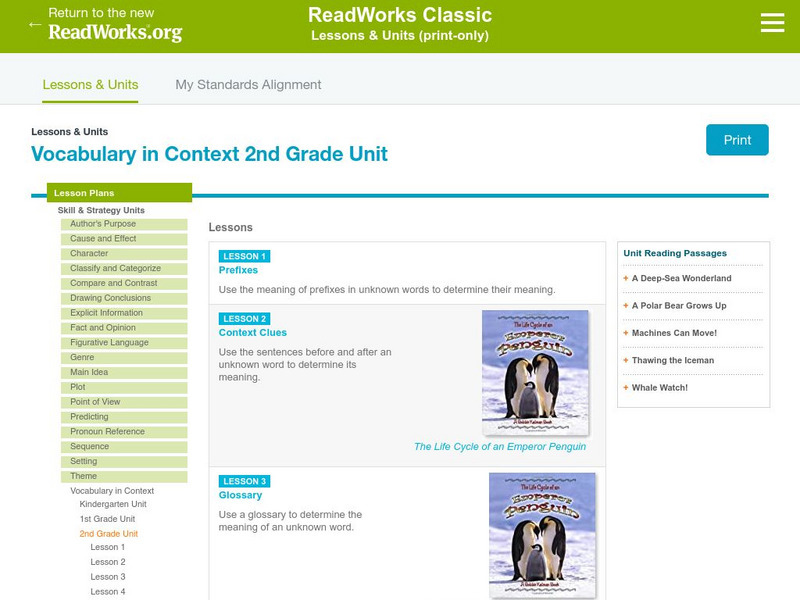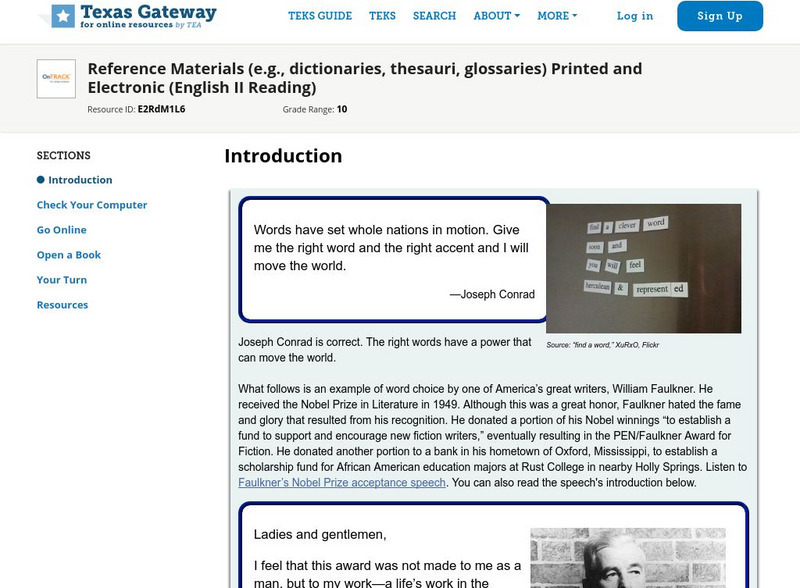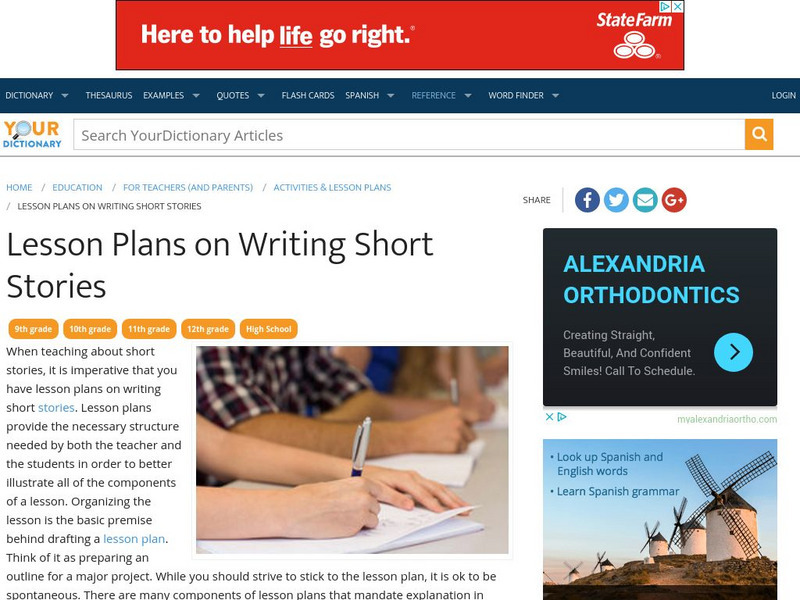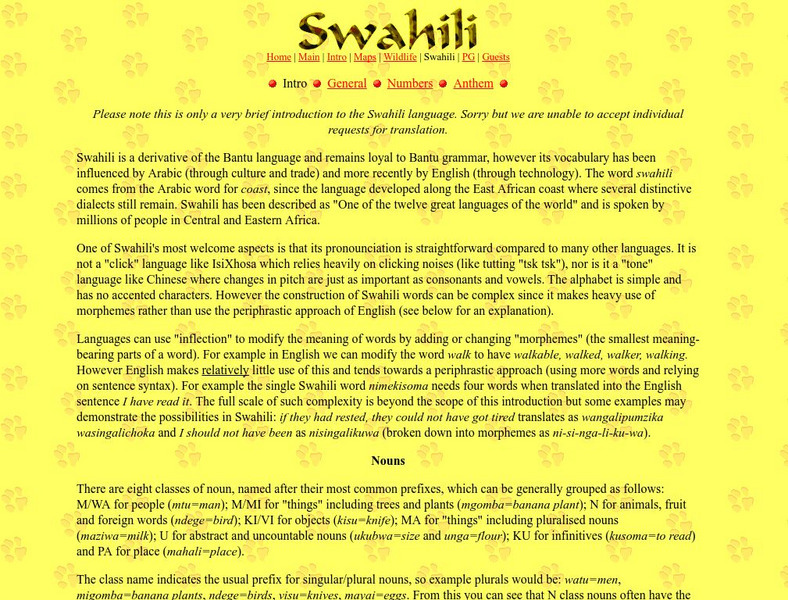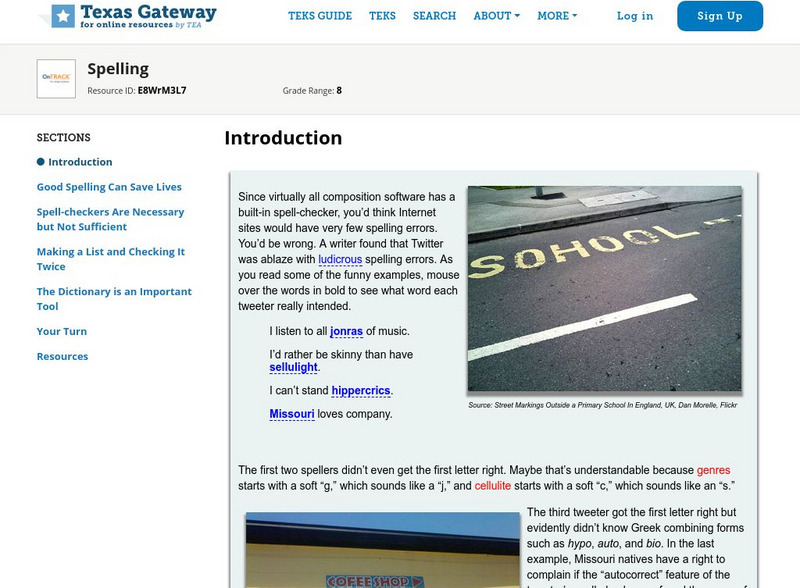Hi, what do you want to do?
Love To Know Media
Your Dictionary: Lesson on Teaching Compound Words
This lesson plan focuses on teaching compound words and is specifically designed for second grade; however, it could be adjusted for other grades.
Love To Know Media
Your Dictionary: Middle School Lesson for Who vs. Whom
This site offers two lessons with worksheets and answer keys on the use of who vs. whom as subjects and objects and relative pronouns.
Learning Farm
Learning Farm: Common Core Standards Dictionaries and Glossaries
View a lesson on using dictionaries and glossaries to determine the meaning of words. Test your skills using Test Mode or Game Mode.
Read Works
Read Works: Grade 2: Four Lesson Unit: Vocabulary in Context
[Free Registration/Login Required] A series of four lesson plans designed to develop students' vocabulary skills including understanding prefixes, using context clues, and using a glossary and a dictionary. Lessons are based on the books...
Love To Know Media
Your Dictionary: 2nd Grade Lesson Plans for Forming Possessives
This article focuses on teaching 2nd graders to form possessive. It provides two complete lesson plans with activities for teaching them how to form possessives.
Texas Education Agency
Texas Gateway: Reference Materials: Printed and Electronic (English Ii Reading)
This lesson focuses on using resources such as dictionaries, thesauruses (or thesauri), and glossaries to find and use words that will improve not only your reading skills but also your writing skills. L.11-12.4c References
Love To Know Media
Your Dictionary: Lesson Plans on Writing Short Stories
This instructional activity focuses on teacher preparation of lesson plans before attempting to teach students to write short stories. It includes questions to ask yourself, ideas for activities, and a sample lesson plan.
Lumen Learning
Lumen: Critical Reading: Vocabulary
This lesson focuses on increasing your vocabulary including using context clues, dictionaries, and your working vocabulary. It also offers two videos with strategies for enhancing your vocabulary.
Sophia Learning
Sophia: Vocab Tip: Hear It Said Out Loud
This video lesson focuses on the strategy of hearing unfamiliar vocabulary said aloud. The advantages of hearing it said aloud include activating prior knowledge and the brain remembering it better. It offers ways to learn the...
Lumen Learning
Lumen: Rhetorical Reading: Read Strategically: Retain New Words
This lesson focuses on strategies to retain new words such as reading voraciously, use a good dictionary and thesaurus, use new words, and learn a new word every day. It also provides an annotated biography of resource material.
Sophia Learning
Sophia: Compound Words
This slideshow lesson focuses on compound words; it defines the term, provides a list of examples of both hyphenated and non-hyphenated compound words, explains the rules for when to hyphenate them, and provides examples. It also...
Other
Masai Mara: Introduction to Swahili
This site features an introduction to Swahili. It discusses Swahili nouns, adjectives, and verbs. Teachers can uses this resource to create their own lesson plans on African language and culture.
Texas Education Agency
Texas Gateway: Spelling
In this lesson, you'll be reminded why spelling is important; a three-step strategy to follow when you edit your written work or the work of your peers; when to rely on the spell-checker and when to override it with your own good...
Other
Danielle's Place: Bible Theme Crafts for Kids
If you teach religion to elementary students, then you have to see this site! It is overflowing with creative ideas to use in your classroom and will get your students excited about the Bible. Many of these lessons also integrate math,...
Khan Academy
Khan Academy: Clarifying Meaning Quick Guide
In a given text, words and phrases do not appear in isolation but are embedded in the context of a narrative, an argument, an explanation, and so on. Accordingly, clarifying meaning questions test your ability to identify contextually...
Alabama Learning Exchange
Alex: Ready, Set, Research!
Students will have the opportunity to do research on a weather topic in which they are interested. This lesson will teach the students how to use dictionaries, encyclopedias, resource books and the Internet to find facts about the...





